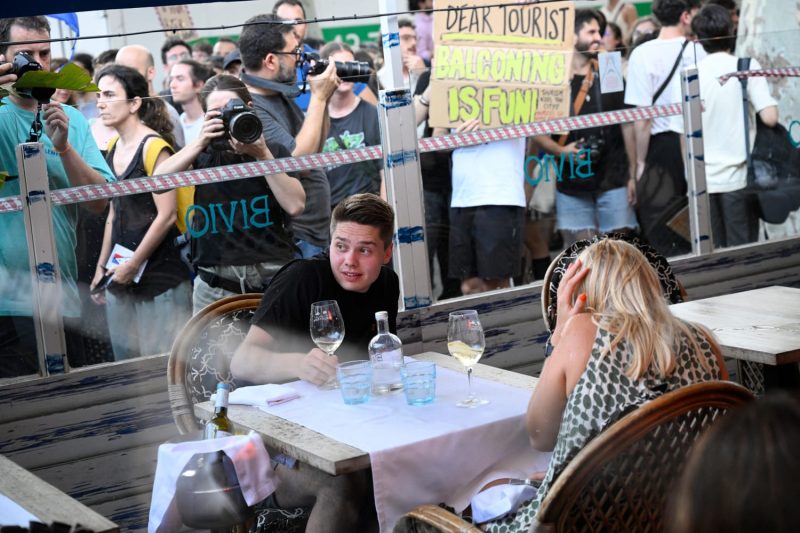Barcelona Protesters: Understanding the Implications of Antitourism Demonstrations
The recent surge in antitourism protests in Barcelona has brought to light a complex web of issues that have long simmered beneath the surface. Barcelona, a city known for its vibrant culture, historic architecture, and picturesque beaches, has become a magnet for tourists from around the world. However, this influx of visitors has also resulted in a host of challenges for both the local inhabitants and the city’s infrastructure. The recent spate of protests, where demonstrators have thrown items and sprayed travelers with water while shouting tourists go home, underscores a growing sentiment of resentment and frustration among some Barcelona residents.
At the heart of the antitourism movement in Barcelona is the debate around the impact of mass tourism on the local economy, environment, and social fabric. While tourism plays a vital role in driving economic growth and creating job opportunities, it also brings with it a range of negative consequences. From rising rents and displacement of local residents to overcrowding and strain on public services, the downsides of unchecked tourism are becoming increasingly apparent in Barcelona.
One of the primary grievances of antitourism protesters is the commodification of their city and culture for the benefit of foreign visitors and large corporations. Many feel that the essence of Barcelona is being eroded by an industry that prioritizes profit over the well-being of its residents. The proliferation of short-term rental platforms like Airbnb has further exacerbated the housing crisis in the city, as landlords convert residential properties into lucrative vacation rentals, driving up rental prices and forcing locals out of their neighborhoods.
Moreover, the strain on Barcelona’s infrastructure due to mass tourism is a cause for concern. Overcrowded streets, public transportation systems operating at full capacity, and historic sites overrun by tourists have all contributed to a sense of disarray and frustration among local residents. The degradation of natural spaces and the environmental impact of tourism are also significant issues that antitourism activists are seeking to address.
In response to the growing discontent, city officials in Barcelona have taken measures to regulate tourism and address some of the concerns raised by residents. Initiatives such as limiting the number of tourist accommodations, promoting sustainable tourism practices, and investing in community-led tourism projects are steps in the right direction. However, finding a balance between reaping the benefits of tourism and preserving the integrity of the city and its culture remains a complex challenge.
Ultimately, the antitourism protests in Barcelona serve as a poignant reminder of the need for a more sustainable and inclusive approach to tourism management. By engaging in dialogue with all stakeholders, including residents, businesses, and policymakers, it is possible to chart a path forward that respects the interests of the local community while ensuring the continued prosperity of the tourism industry. Barcelona must find a way to harness the economic opportunities afforded by tourism while safeguarding its unique identity and quality of life for generations to come.
